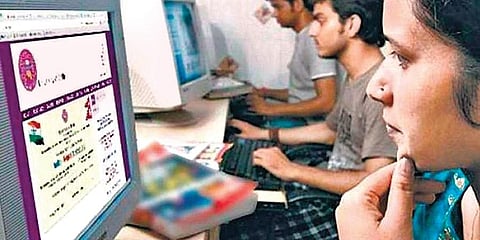

HYDERABAD: The 2020 Global Education Monitoring (GEM) report by UNESCO shows that all over the world, layers of discrimination on the basis of gender, remoteness, wealth, disability, ethnicity, language and other factors deny children the right to quality education.
It notes that the exclusion has been heightened during the Covid-19 pandemic, estimating that about 40% of low and lower-middle income countries have not supported disadvantaged learners during school shutdown. It calls for countries to focus on those left behind as schools reopen so as to foster more resilient and equal societies.
Talking about the same, Arman Ali, executive director of NCPEDP - National Centre for Promotion of Employment for Disabled People, says: “Even parents of non-disabled persons have filed a plea in the Supreme Court against the conduct of online classes. A couple of suicides have also been reported in which children could not continue classes because they had no smartphones. There is a huge digital divide in India. For people with disabilities, we need more than just a smartphone for continuous education.
The classes have to be accessible for the visually and hearing impaired. The government has not defined the rules yet. During offline examinations, the visually impaired can take the help of scribes. They also get extra time to complete the tests. How much extra time will they get during online exams? Though technology can remove many barriers for the disabled, the infrastructure is not there. There is a digital divide among PWDs too. Those who are tech-savvy and have resources can still access education online, but others who have gone to government schools and studied through Braille system will find it difficult to adapt to these changes.”
M Srinivasulu, founder president of Network of Persons with Disabilities Organisation, says: “People with dyslexia, autism and learning disabilities need special classes, but no teacher can come to their houses now due to the pandemic.”
In 10 low- and middle-income countries, children with disabilities were found to be 19% less likely to achieve minimum proficiency in reading than those without disabilities.
— Kakoli Mukherjee
kakoli_mukherjee@newindianexpress.com
@kakoliMukherje2